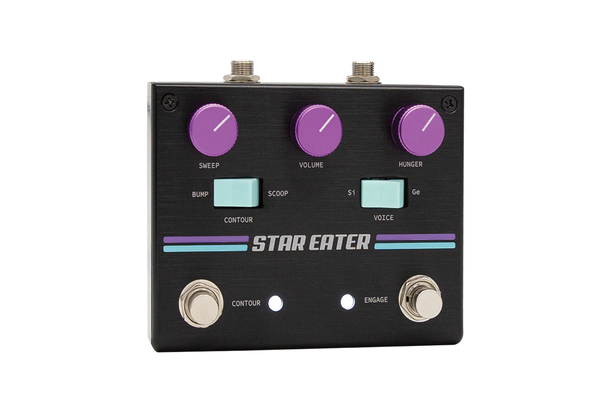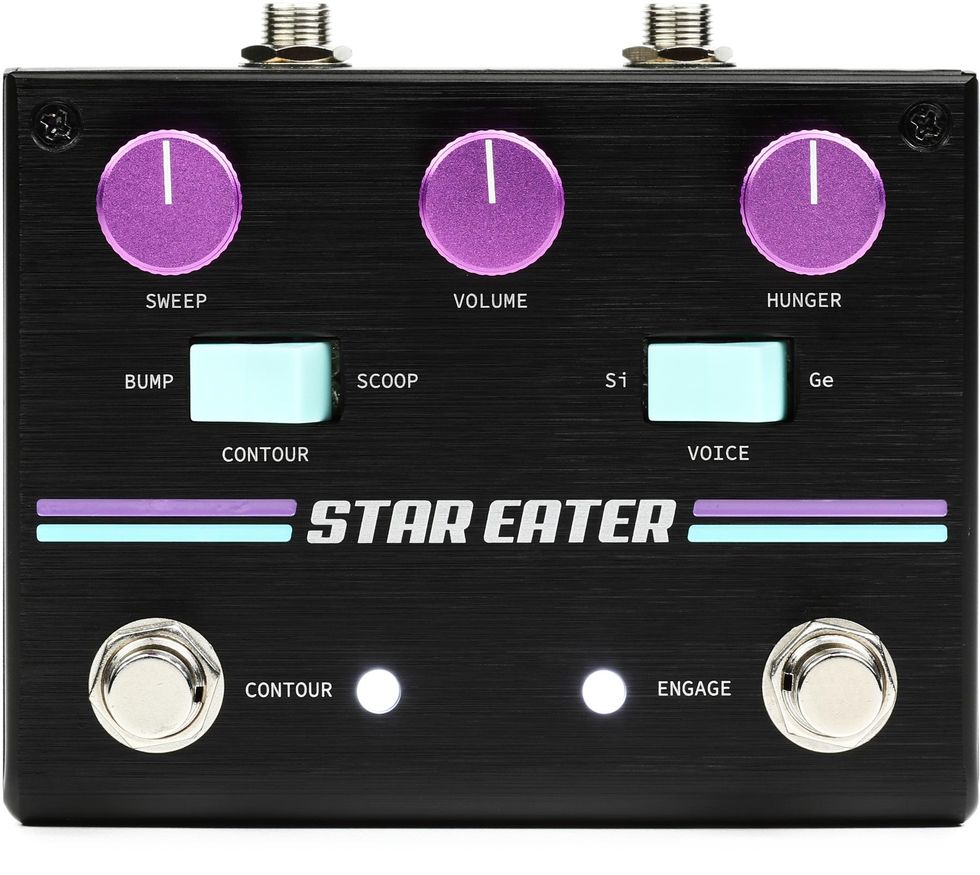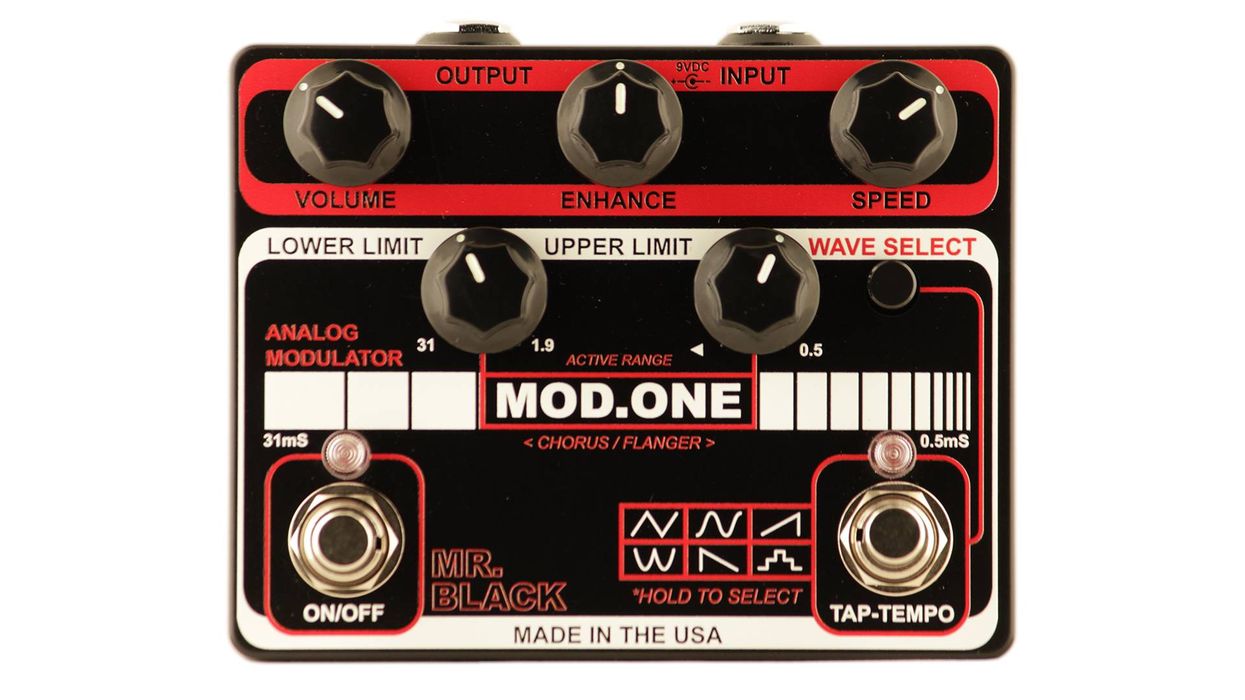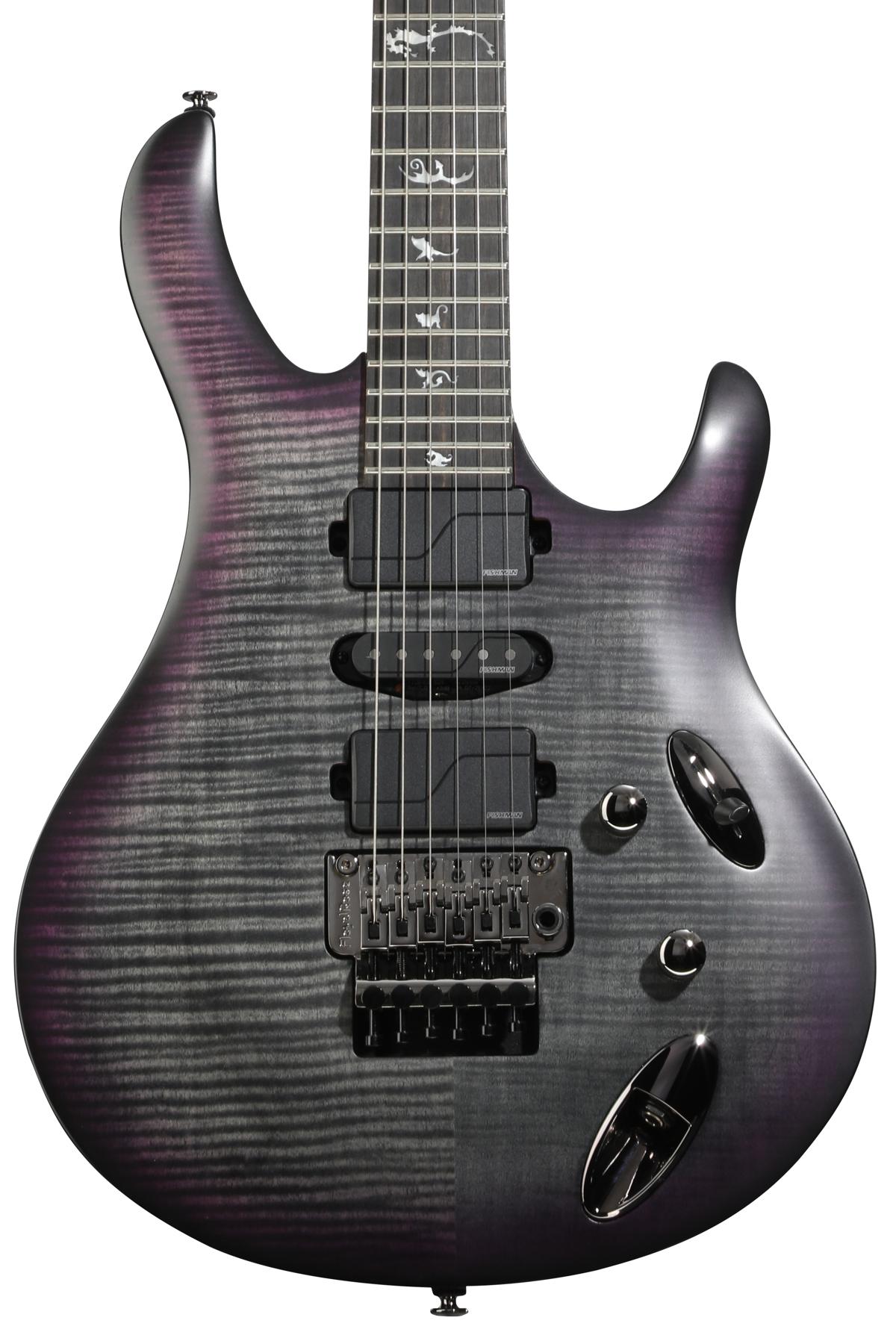Though it feels sacrilegious to say, sometimes you need a break from fuzz—a chance to rest the ears, to bathe in the overtones of a little reverb, or just listen to the birds sing. That’s the place I was in when the Pigtronix Star Eater arrived. An hour later I wasn’t nearly as interested in the birds anymore.
It’s hard to pinpoint a classic fuzz touchstone that’s useful to describe the Star Eater. At many settings it has a lot of the chainsaw grind and piercing focus of a Shin-Ei Super Fuzz, but it’s thicker. At other settings it has some of the mass and wallop of a Rams Head Big Muff, but it’s less woofy and thick. Elsewhere you hear echoes of the Foxx Tone Machine and ZVex Fuzz Factory. But generally, such comparisons are pretty futile: The Star Eater shines in a galaxy all its own.
Fuzz Maze
One reason the Star Eater’s personality is hard to pigeonhole is that it has a few. This multi-faceted character is attributable to the Star Eater’s big and snarly but malleable fundamental voice, which is controlled by a simple set of three knobs and two rocker switches. When the contour filter is off, the fuzz is shaped by the volume and gain knobs and the germanium/silicon clipping switch. That’s a simple set of controls, but there are many sounds to find within their respective ranges. Winding up the output volume and gain (called hunger) produces hot, trashy, and saturated tones that are killer for super-focused punk power chords and leads that rip and splatter. Sustain is impressive, too. But it’s not the vocal- or violin-like sustain you hear in a Big Muff. Instead, it’s reedy, cracked and fractured, particularly when holding deep pitch bends.
Sustain is not the vocal- or violin-like sustain you hear in a Big Muff. Instead, it’s reedy, cracked and fractured.
Low gain/high volume settings produce sounds that range from ’66-style germanium fuzz voices at full guitar volume to almost ring-modulated and electric-sitar-like voices at attenuated guitar volumes. These glitchier, messier fuzz sounds are some of the pedal’s coolest colors. The fuzz is plenty loud at these lower gain levels, too, which means you can explore these sounds in a live band without the fear of being rendered silent.
Filtered Fatness and Contoured Screech
The contour filter, controllable via the footswitch, rocker switch, and knob on the left side of the pedal, generates versions of the Star Eater voice that run from scooped and fat to raspy and cutting. Parking the sweep knob somewhere around noon and switching in the contour filter makes a given sound from the fuzz side fatter and fuller. You can also further shape the response and tonality with the contour rocker switch, which moves between a scooped and bumped midrange profile.
When you move the sweep knob a little in either direction, the sustain becomes more unstable and EQ emphasis shifts—usually with deliciously perverse results. The best of these sounds, at least in my demented estimation, are in the clockwise range with the mid-contour switch in scooped mode. Here, screaming notes quickly turn to shards of cracked octave overtones and harmonics that sound especially freaked-out and full of fangs when you move the rocker switch to the scooped setting.
The Verdict
While it was hard to determine any direct lineage between the Star Eater and any other classic fuzz (and what a treat that is), the Star Eater evoked many thrilling musical spaces: Mudhoney, Ghost’s Michio Kurihara, the manic buzz of a thousand aggro psych-punk bands, and the meaty, trucking riffage of 100 Sabbathoid sojourners.
What really sets the Star Eater apart for me, though, is attitude. It’s not the burliest fuzz or the weirdest. But by inhabiting a world between those poles, the Star Eater manages to be articulate and nasty—a poet assassin and a civilized brute. These are the kinds of tones that make a solo or driving rhythm part explode in a recorded mix or onstage. And if you like your guitar parts with a touch of chaos and the confrontational, you’ll find this stompbox beautiful.
Star Eater Analog Fuzz
- All-analog design delivers authentic old-school fuzz tones
- Dual footswitch setup, sporting a powerful fuzz side and a versatile Boost/Filter side to cover all of your fuzz needs
- Precision matched transistor pairs allow you to effortlessly dial in the “sweet spot”
- Voice rocker switch offers both smooth germanium sounds and wild silicon tones





















